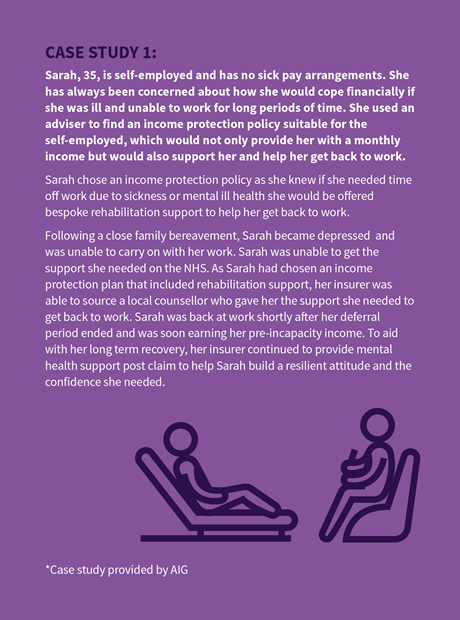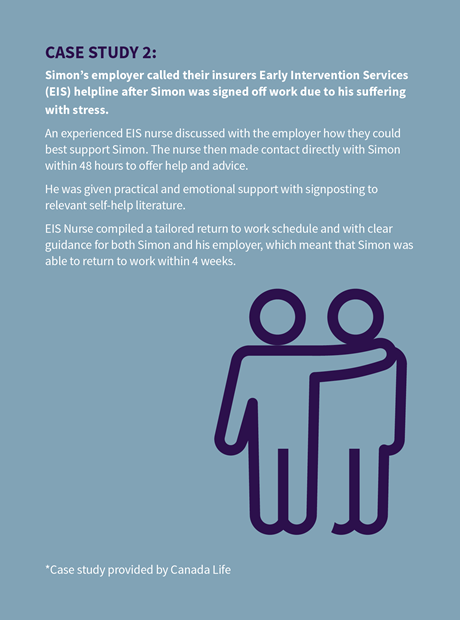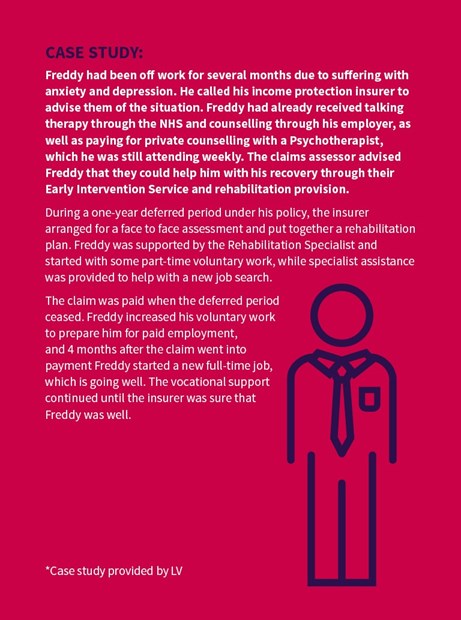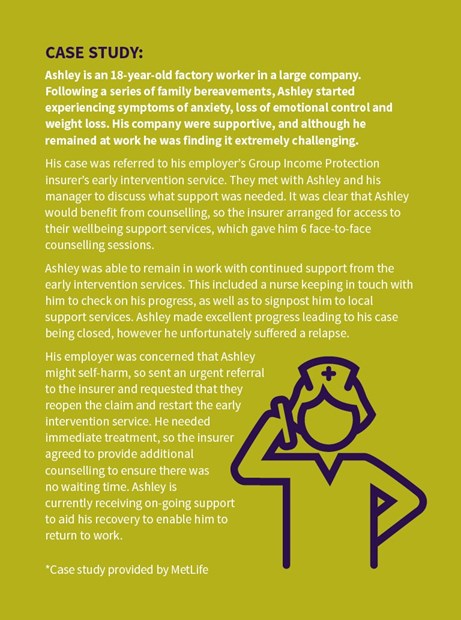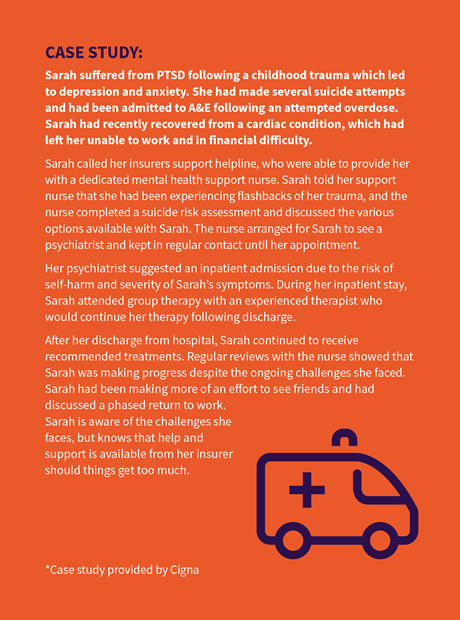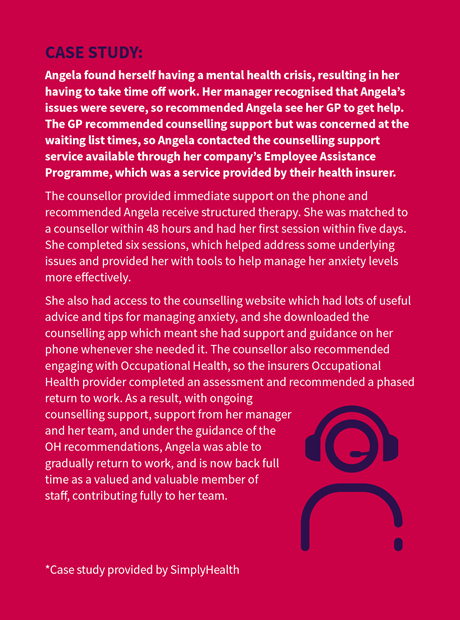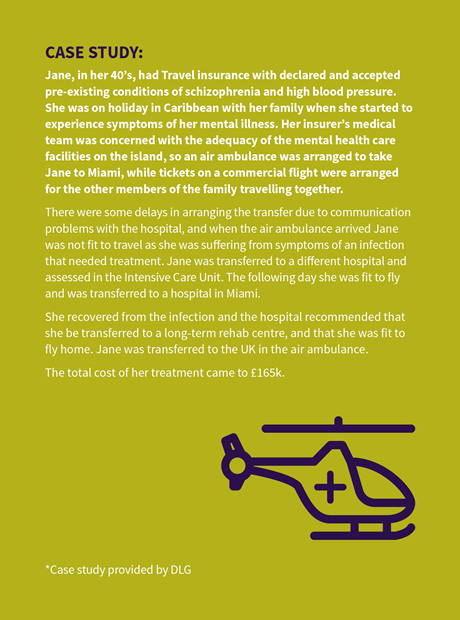On this page:
- Mental health and insurance
- Why have insurance to cover mental health care?
- Before You Buy
- Information you might need
- Challenges you might face
- Getting help
- Case studies
- The ABI and its work on mental health
Mental Health and Insurance
Mental health conditions might not be as easy to pin down as physical health conditions, but insurers are increasingly recognising the need to provide cover and support to people suffering with mental ill health.
One in four of us in the UK will be affected by a mental health problem in any given year, and of these, around four million will also struggle with their financial wellbeing. We are therefore aware of the importance and value of insurance in protecting you when life doesn’t go to plan.
The insurance industry continues to demonstrate increasing commitment to aiding people suffering from mental ill health. In 2017, Mental Health was the most common cause of claim on income protection policies in the UK. The ABI continues to engage with charities and the health and protection industry to promote greater access to insurance for people with mental health conditions and has repeatedly emphasised its commitment to aiding people suffering from mental ill health.
There is no difference in any of the insurance decision making processes for mental health to those for physical health. The process by which decisions are made and guidelines are written is consistent for every medical condition whether physical or mental health (or, as is often the case, a combination of the two.)
If you are considering buying an insurance product and have a mental health condition here are some things you might like to consider:

